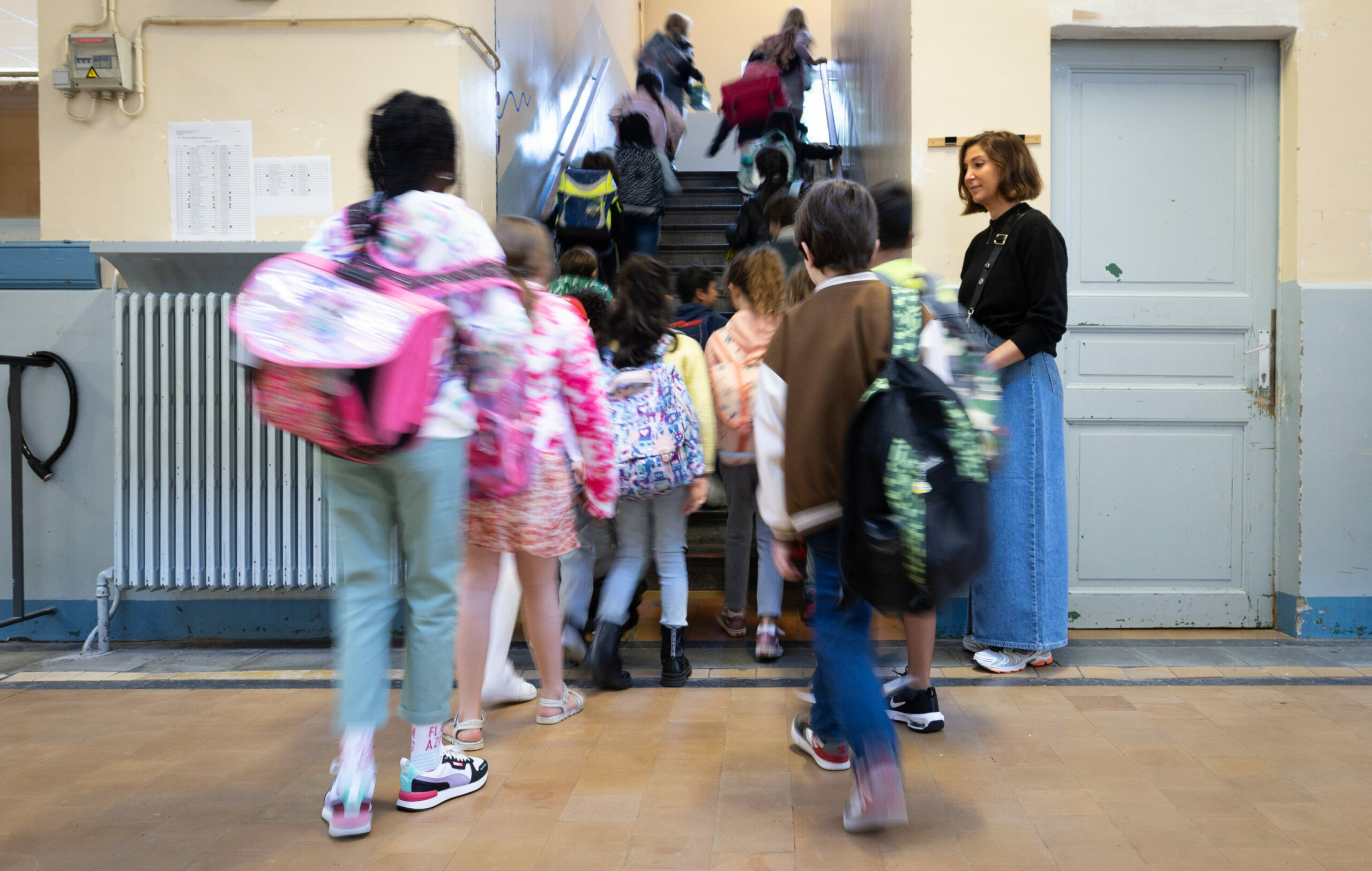Some 900,000 pupils and 120,000 teachers in the French-speaking educational system return to school on Monday 26 August. Children in Dutch-speaking schools, meanwhile, can enjoy one more week of holidays.
After a seven-week holiday, pupils and teachers of the Wallonia-Brussels Federation (FWB) will again fill school classrooms in Brussels and Wallonia. Monday marks the start of the 2024-2025 school year and brings several new measures that apply to the sector.
New rules and measures
Among the most important changes is the extension of free school materials to the third year of primary school. This is a measure that has been introduced gradually, first in nursery schools and then in the first two years of primary. Schools in the French-speaking community will receive a lump sum of around €7 per pupil to provide materials and school supplies. The measure is calculated to save parents around €100 per child. Schools can still charge for swimming classes, cultural activities or trips.
The new core curriculum – the Pacte pour un enseignement d'excellence currently in place from kindergarten to the fourth year of primary school – will be extended to the fifth year of primary school. Pupils will receive three hours of physical and health education each week, benefit from personalised support, and will be less likely to repeat a year. From the start of the next academic year (2025) this will be extended to the sixth year of primary school.

Credit: Belga / Benoit Doppagne
In response to teacher concerns raised by unions during the previous parliamentary term, new rules on maximum class sizes will come into force. The nursery school class can have a maximum of 22 to 24 pupils. For primary schools, the ceilings already in place have been confirmed but the class sizes cannot be automatically enlarged without the advice of the schools' internal consultation bodies.
Finally, teachers now also enjoy a right to disconnect, a measure already in place in other sectors. This means teachers are free to ignore phone calls outside working hours "except in an emergency duly justified by their organising authority". They are also not required to respond to emails or electronic notifications sent to their school's platform in the evening or at weekends.
How will a new government impact education?
The new MR-Les Engagés majority that governs the Wallonia-Brussels Federation (FWB) had raised questions as to whether all planned measures would come into effect. The FWB initially announced its intention to "evaluate" the plan for free school materials and "adapt" it if necessary. But Ligue des familles (League of Families) – a civil organisation that campaigns for educational equality – urged for this measure to remain in place and to be further expanded in the coming years.
The League argues that subsidising school materials represents only a "minimal investment" of the FWB's budget. Valérie Glatigny (MR), FWB Education Minister, told RTBF she had no intention of changing the scheme.
One big change to school life introduced by MR-Les Engagés is a ban on smartphones. This will be in force in more than 370 schools from this school year.
Other decisions taken by the new government have raised concern among teachers in the French system. For instance, solutions proposed to tackle the teacher shortages, which affects schools across the country, have led to concern about a drop in working conditions. The teacher shortage is seen as one of the biggest threats to the quality of education. It already has caused classes to be cancelled and forced schools to scrap or modify exams.
Related News
- Young people in closed youth care can now receive temporary education at home
- New school year: Cheaper public transport in Brussels for children and students
- Smartphones banned in over 370 French-speaking schools from this school year
The new government proposes to let some teachers work more – for instance those coming out of teacher training, gymnastics or religious teachers or those with master's degrees in primary education and lower secondary education. However, teachers have already called for a reduction of their workload.
The current system of permanent appointments for teachers – which provides job security and pay retention – is also problematic and is under review. The new coalition wants to replace this system with open-ended contracts, which unions argue make the professions even less attractive, further worsening the shortages.

